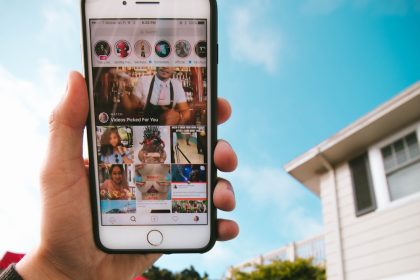Five ways social media has transformed how we do business
Over the past 10 years, social media has transformed the way we communicate. Here are five ways it has changed how we do business.
There’s no question that social media has changed the way we live – in both our personal and work lives. It’s changed the way we communicate, who we communicate with, and the way we consume information.
But has it improved our efficiency? Or has it just become another distraction? And how can you make sure you’re making the most of the opportunities it offers in your business?
Here are five ways social media has changed the way we do business – and how you can make sure you reap the benefits (and don’t make common mistakes).
1) Social media can save you time and money
A common misconception is that social media is essentially a tool for procrastination; that it’s not much more than a tempting distraction from ‘real’ work. But used wisely, it can actually save your business time and money.
Social media has opened doors for people, businesses and brands, giving us access platforms where almost everyone is on – including your customers or target audience.
For a business, this kind of access is priceless. It enables you to get targeted marketing campaigns out quickly, and test and measure just as fast – improving your ROI immeasurably.
Worried you’re wasting time on social media? Make sure your efforts actually repay you in results by avoiding the social media time suck.
2) It’s changed how we consume information
Social media has increased the pace at which we consume information, delivering breaking news stories in as few as 140 characters. It’s also created a demand for media and businesses to provide short snappy statements to get our attention.
However, this unending access to information can be distracting and all-consuming – where do you stop? As a result, we are increasingly looking for ways to limit the amount of information we’re exposed to by tailoring our experience.
For businesses this means that you can’t just afford to broadcast ‘anything’. Now more than ever you need to ensure your content is interesting and useful to your followers. With so much information competing for their attention they’ll quickly tune you out and switch off if you don’t add something different or give them what they want.
Need to capture your audience’s attention in a crowded market? Find out how our online Twitter course teaches you how to create a strategy and write tweets that get results.
3) It’s blurred the lines between work and life
Social media also blurred the lines between our work and our personal lives. It’s normal to become friends with colleagues and clients on Facebook, and follow each other on Instagram or Twitter.
It’s also improved the channels of communication. Rather than waiting until everyone can physically be in the same room for a catch up, meetings can take place virtually, and information shared and discussed online.
The potential downside to this, of course, is that anything you post in a personal capacity can have an impact on your professional reputation, and even career – as Justine Sacco discovered to her cost.
Not sure how to engage with people on social media in this new age of communication? Read five basic social media engagement rules.
4) You can target your marketing more specifically
Social media has revolutionised the way businesses are able to reach existing and potential customers, and enabled smaller businesses to create clever marketing campaigns on shoestring budgets.
It offers businesses more options to share content, join in conversations, engage with influencers and drive traffic to their website through organic and paid activity. Brands can also adopt a much more targeted approach via social media, using demographics to create specific campaigns and messages for different audiences.
Are your social media campaigns not yet delivering the results you want? Learn how to target your digital marketing.
5) Our expectations of customer service have changed
More than anything however, social media has fundamentally changed our expectations of customer service. Rather than calling up a help line and being put on hold for 10-15 minutes, or waiting over an hour for a reply to an email, social media has created the expectation that queries and complaints need to be dealt with immediately.
A major reason for this has been because the large majority of social media is open to the public to see, so if brands fail to respond within a short amount of time, it becomes a poor reflection on the brand themselves.
So if an unhappy customer reaches out to you on social media it’s essential you respond quickly, and are seen to deal with it responsibly. Otherwise you won’t just have one unhappy customer – you’ll potentially have a viral PR nightmare on your hands!
How can you make the most of the customer service opportunities on social media? Read five ways you can use customer feedback to improve your business.
Don’t miss the opportunities on social media
Social media offers fantastic opportunities to businesses of every size – but only if you know what you’re doing. So make sure you up skill, get practise and embrace social media – while avoiding some of the most common mistakes.
Jason Downes is Managing Director of Powownow.










